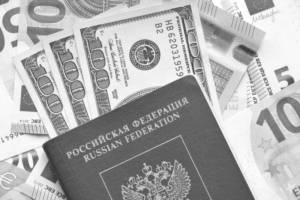On October 1, 20191, amendments to the Civil Procedure Code of the Russian Federation and the Commercial Procedure Code of the Russian Federation come into force, which will allow individuals and legal entities to collectively file lawsuits against one defendant.
Why will the innovations be of interest to both consumers of goods and services and business owners? The fact is that quite often in consumer, labour and similar disputes, the claims of one individual are disproportionate to the costs that it will have to incur in order to protect its rights in court. For instance, those may be clients of a mobile operator or employees of a large pharmaceutical company. Collective lawsuits are designed to protect a wide range of individuals and to share the costs among all plaintiffs.
To file a collective lawsuit, the following conditions must be complied with:
- it is necessary to protect common rights and legitimate interests;
- all members of the group have the same defendant;
- the rights of a group of people and the obligations of the defendant are based on similar factual circumstances (for example, tenants received payment documents for housing and communal services with the wrong amount of money to be paid);
- all members of the group have chosen the same way of protecting their rights (for example, all members of the group declare a claim for damages).
Our team has analysed the draft adopted and singled out its main features:
- To file a collective lawsuit, you first need to assemble a group of people (according to the Civil Procedure Code, no less than 20 persons, and according to the Commercial Procedure Code, at least 5). In some cases, a body, organisation or citizen who is not a member of this group can appeal to the court (for instance, a prosecutor may appeal to the court in defense of the rights of workers as authors of official works).
- The members of the group can conclude an agreement between themselves on the procedure for exercising their rights and obligations (for example, they can choose the person who will be entrusted with the conduct of the case in their interests).
- At the stage of preparation for the case, the judge decides on the composition of the group of people and sets a time period during which the person representing the interests of the group should invite other persons to join the claim. It should be noted that it is possible to join a collective lawsuit at any time before the transition of the court to the stage of judicial debate.
- The defendant may be required to bring information about the decision to the attention of all members of the group of people within the prescribed time period through mass media or in any other way.
- Despite the great similarity with the institution of joint participation where each person acts independently in the process, in group actions as a general rule only one person has such rights, with this person representing the interests of the whole group. Also, the person who conducts the case in the interests of the group may entrust the conduct of the case to the representative if this was not prohibited in the agreement of the group of people.
As one of the ways to reduce the risks of negative consequences from collective lawsuits, companies are advised to avoid accumulating the same requirements from consumers which can be attributed to the same goods and / or services, as well as provide corporate measures to reduce the risks of such claims.
1 Federal Law “On Amendments to Certain Legislative Acts of the Russian Federation” dated 18.07.2019 N 191-ФЗ.



